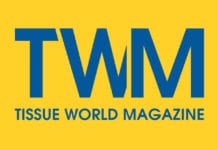Organised in collaboration with Tissue World magazine, the Mill Awards return for the second time in Tissue World Milan with the 2 award categories, Most Energy-Aware Mill Award and Best Tissue Marketing Strategy Award.
Two companies emerge as the winner for the Best Tissue Marketing Strategy Award Category this year – Essity and Hayat Kimya.
The winning campaign ‘Take Back the Lunch Break’ is recognised by the jury due to the positive social impact it created. Aimed at educating and changing social behaviours, the campaign tapped into unspoken truths and fears about lunch breaks. The data demonstrated lunch breaks are beneficial for employee productivity and happiness. Employees who took frequent lunch breaks were more likely to be satisfied with their jobs and more likely to report feeling efficient and effective in the office. The campaign received 147.1MM impressions and 81 pieces of coverage, 661 asset downloads and 75,054 link clicks to the campaign landing page.
The second winner, Hayat Kimya captured the interest of the jury with the successful creation of a new product category, detergent wipes. The Familia Tissue Roll with detergent by Hayat Kimya offers consumers the practicality of the tissue paper and the hygiene of the detergent in just one product. Consumers can activate it with water, wipe and clean the desired areas and dispose it. The success of the product has helped increase the TOM awareness of Hayat Kimya brand in paper towel category by 5 points and the trial score by 8 points from Q1 to Q3 2018. Also, the market penetration score of the Familia Tissue Roll with Detergent is almost the triple of the substitute product – cleaning wet wipes.
The Most Energy-Aware Mill Award goes to Essity Lucca, a tissue mill with a solid track record of energy improvement. Located in Tuscany, Italy, Essity Lucca employs 300 people annually and produces 100.000 tons of mother reels and 75.000 tons of finished goods, a production that consumes 450.000 MWh. In 2017-18, the plant has reduced energy consumption by 5%, equivalent to the CO2 emissions produced by 1.300 cars that travel an average of 15.000 km. This is on top of 13% energy reduction during the last 10 years.
























